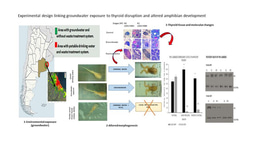Sustainable waste management: a comprehensive life cycle assessment of bioethanol production from agricultural and municipal waste
Published in Chemistry, Earth & Environment, and Sustainability

Biofuels have emerged as a promising and eco-friendly alternative to conventional fossil fuels. Biofuel sourced from rice straw (RS) and municipal solid waste (MSW), which are abundant residues from agricultural and municipal activities, present a sustainable solution to address waste management challenges. Utilizing life cycle assessment, this study quantifies the environmental advantages by assessing the reduction in greenhouse gas emissions, energy consumption, and other environmental impacts linked with employing these waste materials for biofuel production. Employing a cradle-to-gate approach as the system boundary for bioethanol production, with the functional unit set as per liter of bioethanol produced, the analysis reveals that the global warming potential (GWP) for ethanol from MSW is 4.4 kg CO2 eq., whereas for RS, it is 2.1 kg CO2 eq. per functional unit. The total environmental impacts were primarily due to enzymatic hydrolysis and electricity consumption for ethanol production from MSW and RS. Despite advancements, fossil fuel consumption remains a potential energy source for biofuel production. The cumulative energy demand stands at 18.6 MJ for RS and 71.5 MJ for MSW per functional unit, underscoring the potential to significantly reduce overall impacts by transitioning to a more environmentally sustainable energy source. The uncertainty analysis acknowledges the inherent uncertainties associated with data, assumptions, and methodologies, highlighting the crucial need for ongoing research and updates to enhance the accuracy of future assessments. This analysis forms the foundation for well-informed decision-making, providing valuable insights for policymakers, industry stakeholders, and consumers.
Follow the Topic
-
Environmental Science and Pollution Research

This journal serves the international community in all broad areas of environmental science and related subjects with emphasis on chemical compounds.
What are SDG Topics?
An introduction to Sustainable Development Goals (SDGs) Topics and their role in highlighting sustainable development research.
Continue reading announcement


Please sign in or register for FREE
If you are a registered user on Research Communities by Springer Nature, please sign in